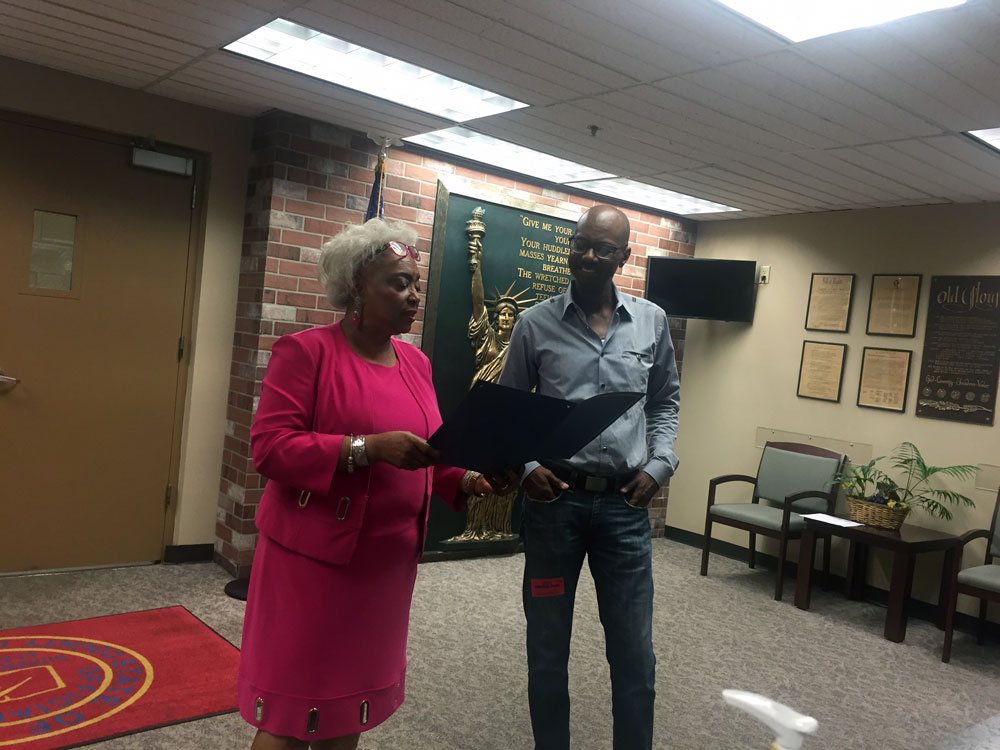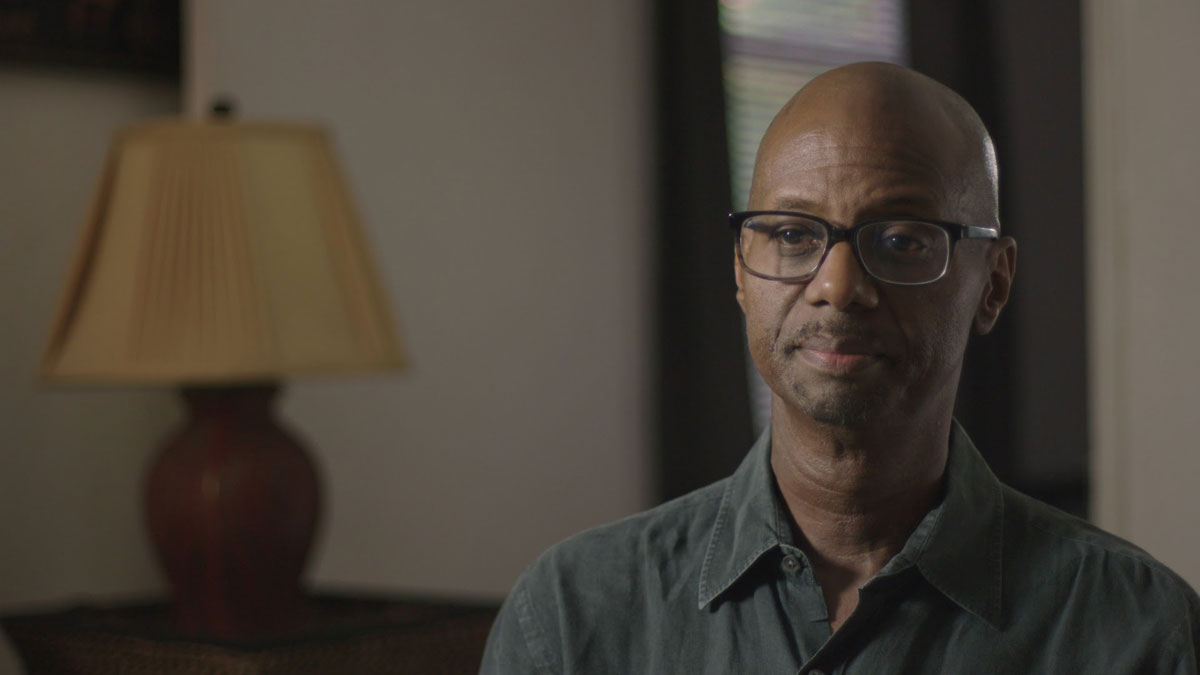
Broward County Supervisor of Elections Brenda Snipes congratulates Roderick Kemp on the executive order reinstating his voting rights.
By Trevor Aaronson
Florida Center for Investigative Reporting
Three months after being featured in a Florida Center for Investigative Reporting documentary short about voter disenfranchisement, Roderick Kemp of Fort Lauderdale received a letter from Florida’s Office of Executive Clemency.
Kemp, 60, figured the letter was just to acknowledge receipt of his application to have his voting rights restored. After all, state officials had told him the process from application to disposition could take up to seven years.
“When I opened it up and read it, there was a brief, one-sentence cover letter that said something to the effect of, ‘Enclosed is a certificate showing your rights are being restored,’ “ Kemp said. “I was like, no, I must have read this wrong.”
He wasn’t reading it wrong. According to the enclosed certificate, Gov. Rick Scott and members of the Florida Cabinet on Jan. 13 issued an executive order to restore Kemp’s voting rights.
Kemp was one of an estimated 6.1 million Americans, and 1.7 million Floridians, who are disenfranchised due to felony convictions. Kemp was informed in 2016 that his voting rights had been revoked due to a felony conviction in 1986, when he was 29, for cocaine possession. It’s unclear why the state took 30 years to revoke his rights due to that conviction.
Prior to losing his voting rights, Kemp had been politically active in South Florida, helping to register voters and volunteering for Democratic political campaigns, including Barack Obama’s in 2008 and 2012. He also managed a field office for Charlie Crist’s 2014 gubernatorial campaign.
In a documentary short produced by Alexandra Clinton and directed by Adeel Ahmed and Ashwin Gandbhir, FCIR told the story of Kemp’s disenfranchisement. In the film — for which FCIR partnered for distribution with The Atlantic, TIME and the Miami Herald, among others — Kemp said of his situation: “It just seems unfair. When you look at my record as someone who’s been involved in the process, I’m qualified. You took that qualification away from me for something that happened a lifetime ago.”
Kemp’s voting rights were restored at a time when other Florida felons who have served their sentences are having an increasingly difficult time getting theirs back. Since Gov. Scott took office in 2011, only about 2,300 cases have been approved for rights restoration. By contrast, Gov. Crist restored rights to 55,315 ex-offenders during his four-year term and Gov. Jeb Bush approved 76,736 cases during his eight years in office.
The Florida Rights Restoration Coalition is now collecting signatures for a ballot initiative that, if passed, would automatically restore civil rights to nonviolent felons after they have completed their sentences.
Kemp suspects the FCIR film played a role in getting his application fast-tracked through the state’s clemency board.
“I think the video may have definitely done something,” he said. “This was a unicorn moment, because it doesn’t happen like this typically.”

